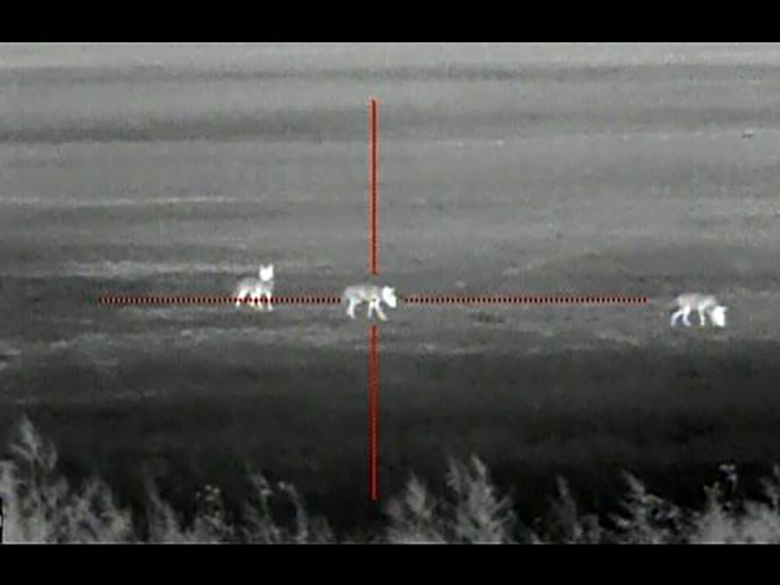
PIKE COUNTY, Mo. — Local Missouri Conservation Agent, Sarah Foran has issued the following statement.
On September 4, 2020 the Missouri Department of Conservation and its Commission approved updated regulations to the Wildlife Code of Missouri regarding coyote hunting and feral hog control that went into effect November 30. I have fielded several questions via phone and while checking hunters about this topic. Like clockwork, the rumor mill jump starts various interpretations about this new rule. If you are a predator hunter chasing coyotes or a landowner wanting another alternative to deal with nuisance wildlife, namely coyotes and feral hogs, read the new regulations or this article carefully as I break this down into three sections. One is for the hunter and the other is for the landowner, however these two can co-exist when hunting nuisance wildlife.
So, I’ll begin with coyote hunters wanting to chase coyotes at night. The change comes in response to citizen requests to the Regulations Committee to use night vision, infrared, thermal imagery equipment, or artificial light to hunt coyotes. For years we have taken requests or fielded questions about nighttime hunting regulations. In the past, coyote hunting required a moonlit night in a snow-covered field or cut bean field to provide the proper amount of back light to see and differentiate a coyote through a scope. Dark nights make this difficult without the aid of artificial light or device. The new regulation allows properly licensed hunters to use artificial light (regardless of color), night vision, infrared, or thermal imagery equipment in conjunction with other legal hunting methods to pursue and take coyotes from February 1 through March 31. Notice this says coyotes. Other regulations regarding artificial light and pursuing furbearers treed by aid of dog are still in place.
The framework for the season dates is to avoid fall deer and spring turkey season overlap and maybe provide quality hides for sale. Regardless of hunting coyotes for sport or because they are a nuisance, other states have also moved to more liberal regulations such as these to increase hunting opportunity and success for taking coyotes.
As for landowners, this regulation came about for the southern Missouri landowners dealing with feral hogs. Knock on wood, this is not an issue in northern Missouri, and I have only heard of short lived and isolated incidences of feral hogs in this region. That being said, landowners were also vocal to the Regulations Committee and the revised regulations will allow landowners and their authorized representatives to use night vision, infrared, or thermal imagery equipment while in possession of any implement where wildlife could be killed or taken to address property damage. The revised regulation allows landowners who own property of any size and their representatives to kill or take feral hogs without prior approval from a conservation agent throughout the year using these methods. An authorized representative is any person who has permission from a landowner to be on present on the landowner’s property.
Lastly, this scenario combines the previously mentioned groups, the coyote hunter and the landowner dealing with wildlife causing property damage. This is the most likely scenario to occur in this region and Pike County. The property owners and their representatives can use night vision, infrared, thermal imaging equipment or artificial light to kill coyotes or other wildlife causing property damage at any time of the year with written authorization from a conservation agent. Note, there must be property damage caused by wildlife and prior authorization is required and the specific parcel will be listed on the authorization form.
These are new regulations that bring about quite a change in how hunters chase coyotes. I honestly never thought this would be a regulation ever approved. But, if I want to think positively, I hope this improves the deer and small game populations and decreases hunter judgement mistakes when predator hunting.
For questions about this topic or anything conservation related topic. Contact your local Conservation Agent, Sarah Foran 573-470-0129.